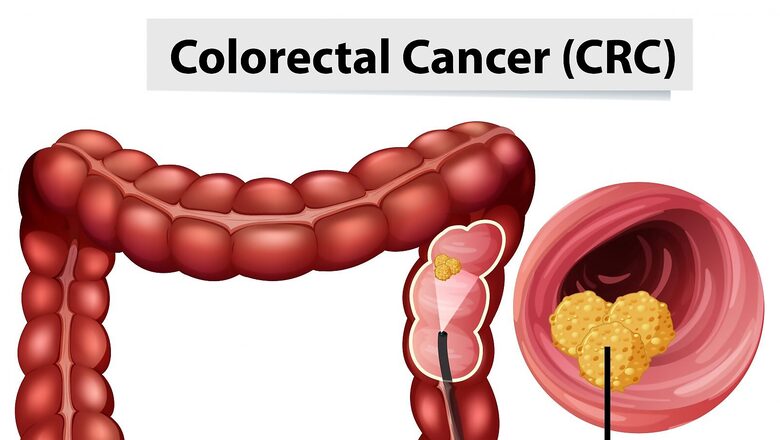
views
Colorectal cancer is a common cancer that affects the colon and rectum. While treatment for colorectal cancer has improved over the years, patients often face mental health challenges during and after treatment. These challenges can include anxiety, depression, and post-traumatic stress disorder, among others. Discussing the importance of addressing mental health concerns as part of comprehensive cancer care is important.
Colorectal cancer is becoming increasingly common in India due to unhealthy lifestyle choices such as eating processed and high-fat foods, lack of physical activity, and obesity. “Patients with colorectal cancer face many challenges, including difficulty adapting to physical limitations, changes in roles, and altered sexual functioning. They also experience psychological issues such as anxiety, depression, fear, and body image concerns, which negatively impact their quality of life. The stage and site of colorectal cancer at diagnosis, as well as the surgical procedures used, can greatly affect quality of life. For example, having a stoma can have a significant negative impact,” says Sreehari R, Consultant and Head, Clinical Psychology, Amrita Hospital.
It is important for patients to have both internal and external resources to help them adapt to the stress of cancer. Internal resources, such as optimism, resilience, control, and self-esteem, are just as important as external resources like finances and social support. Maintaining or acquiring these resources can help prevent depletion and promote healthy psychological adjustment.
Colorectal cancer can be a challenging diagnosis that can affect a patient’s mental health and emotional well-being. It’s important for healthcare providers to be aware of these issues and to offer support to patients during their treatment journey.
Dr Rachna Khanna Singh, Consultant, Mental Health and Behavioural Science, Artemis Hospital, Gurugram discusses the ways to address mental health concerns during colorectal cancer treatment:
- Counselling or Support GroupsOffering patients access to counselling or support groups can provide them with a safe and supportive environment to discuss their feelings and concerns. Patients can also learn coping mechanisms to help them manage their emotions of uncertainty during treatment.
- Coping with treatment side effectsPsychotherapy can teach patients coping skills to manage treatment side effects like pain, nausea, and fatigue.
- Addressing caregiver issuesIt can help caregivers cope with the stress of caring for a loved one with cancer, improving their mental health and well-being. It also aids in managing grief and loss.
- Counseling can help in improving adherence to treatment, so patients stay motivated and committed to their treatment plan, improving their chances of a successful outcome.
“Mindfulness practices like meditation, deep breathing, and yoga can help patients reduce stress and increase feelings of calm and relaxation. Connecting with family and friends or joining support groups can help patients build a strong social support system. Having social support from loved ones and those who understand their experiences can help patients feel less isolated. It is also important for patients to prioritize self-care and engage in activities that promote relaxation and well-being, such as exercise, hobbies, and spending time outdoors,” adds Sreehari R.
By addressing anxiety and depression, patients can improve their overall quality of life and better manage the challenges of colorectal cancer. Patients who have better emotional well-being tend to be more compliant with treatment and have better clinical outcomes.
Read all the Latest Lifestyle News here


















Comments
0 comment